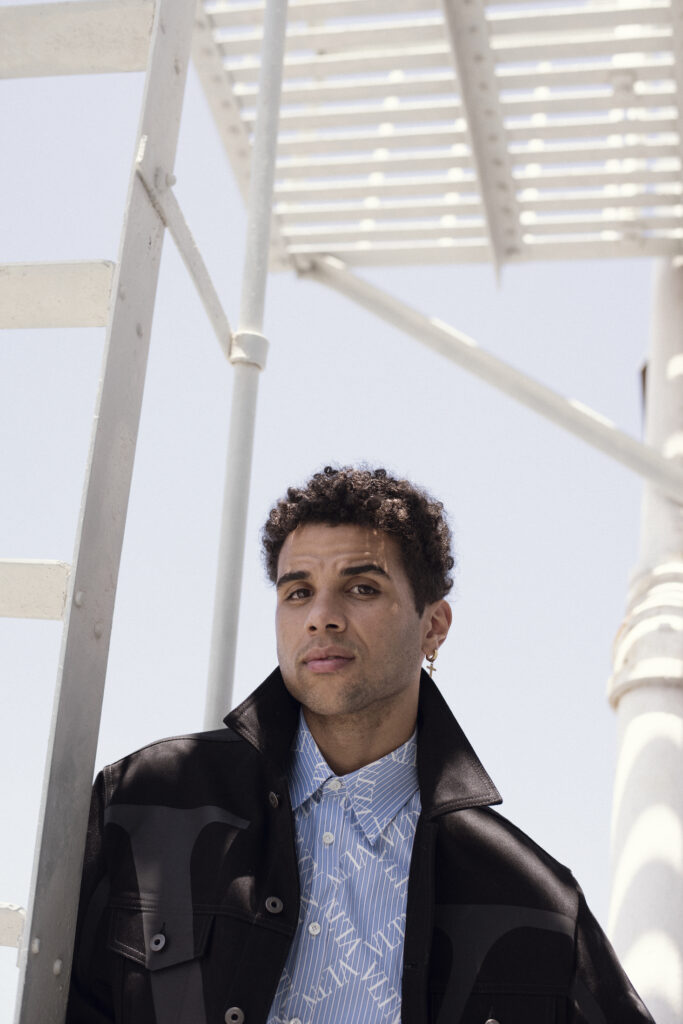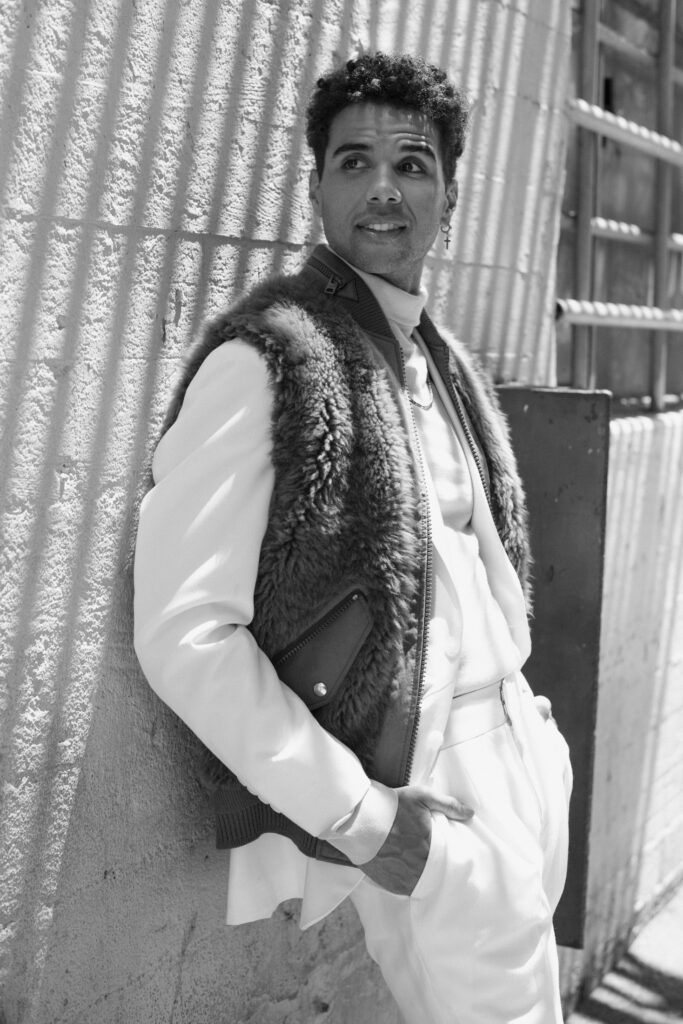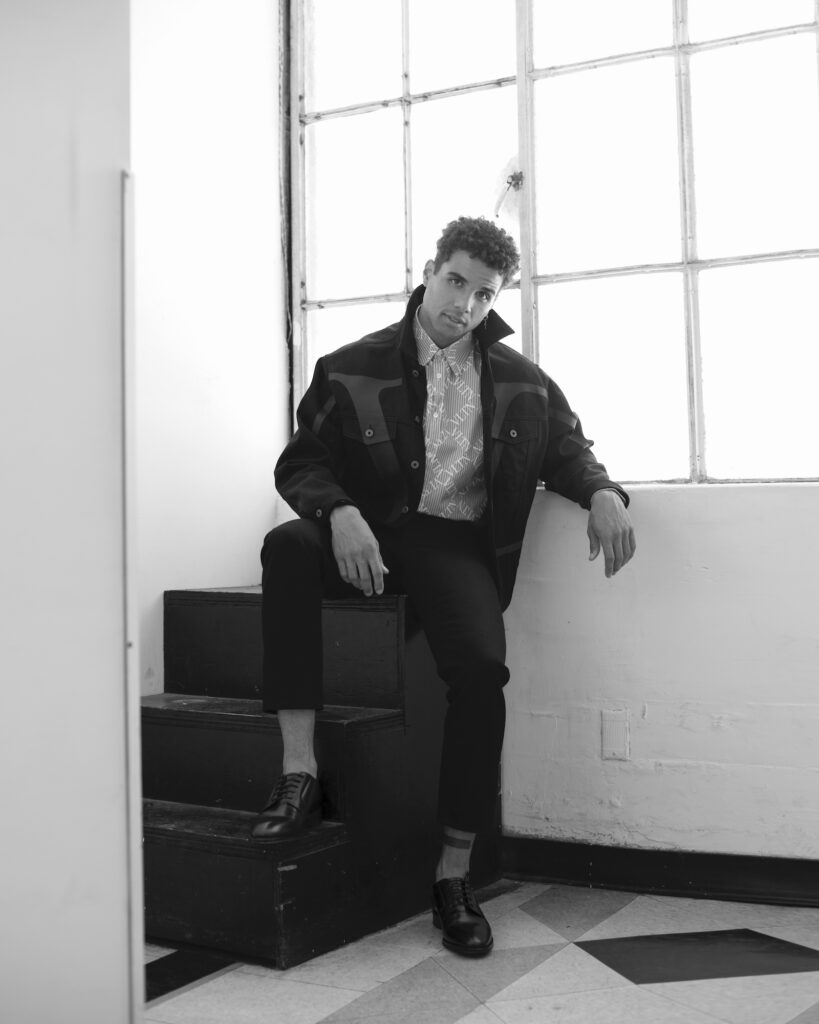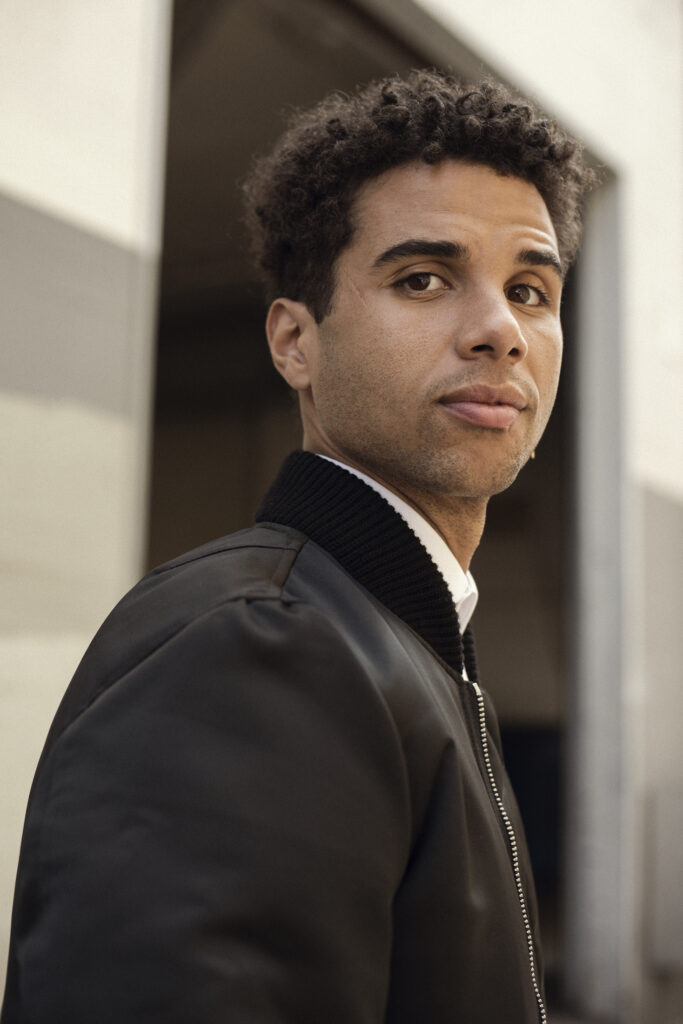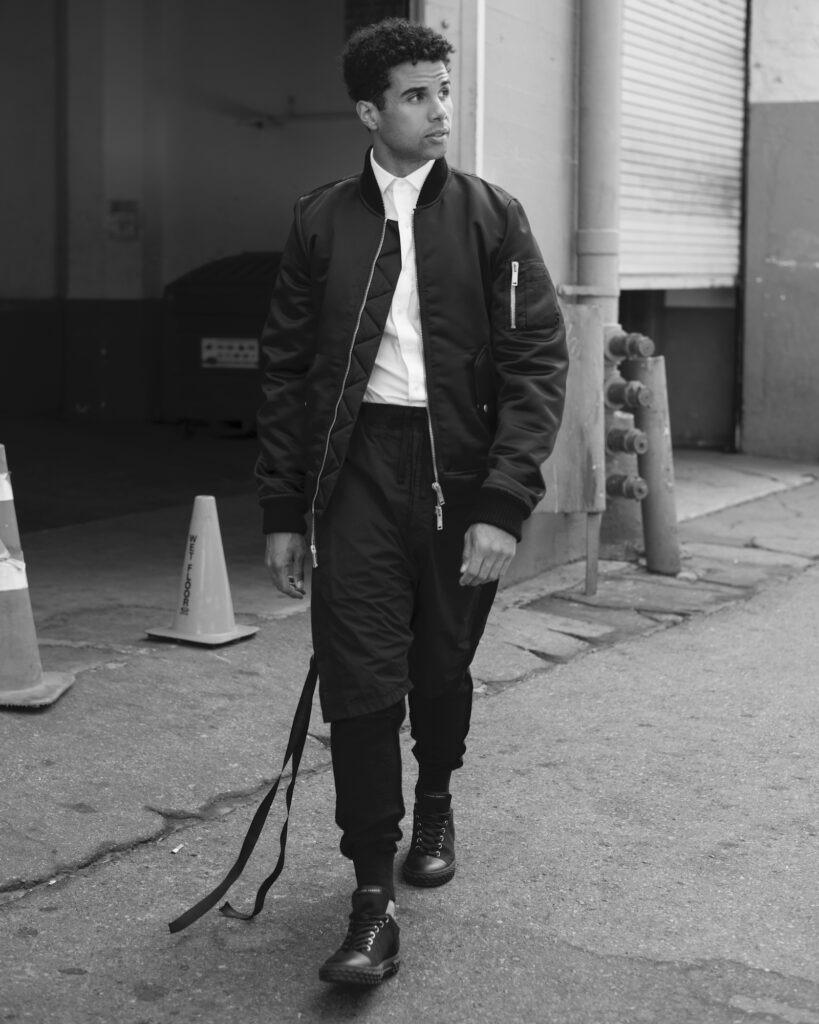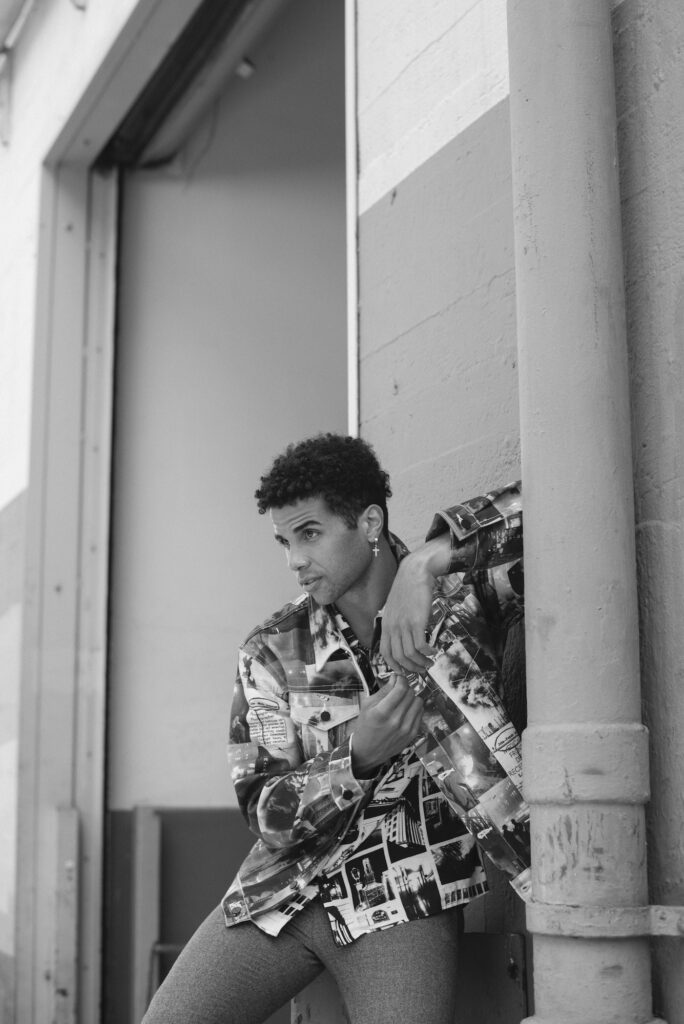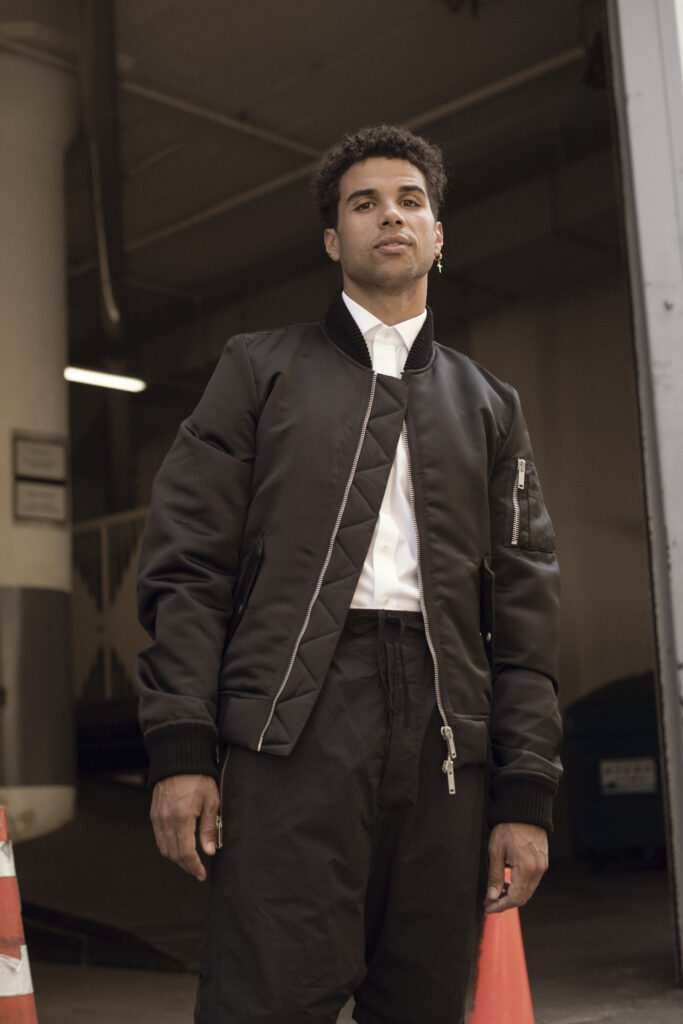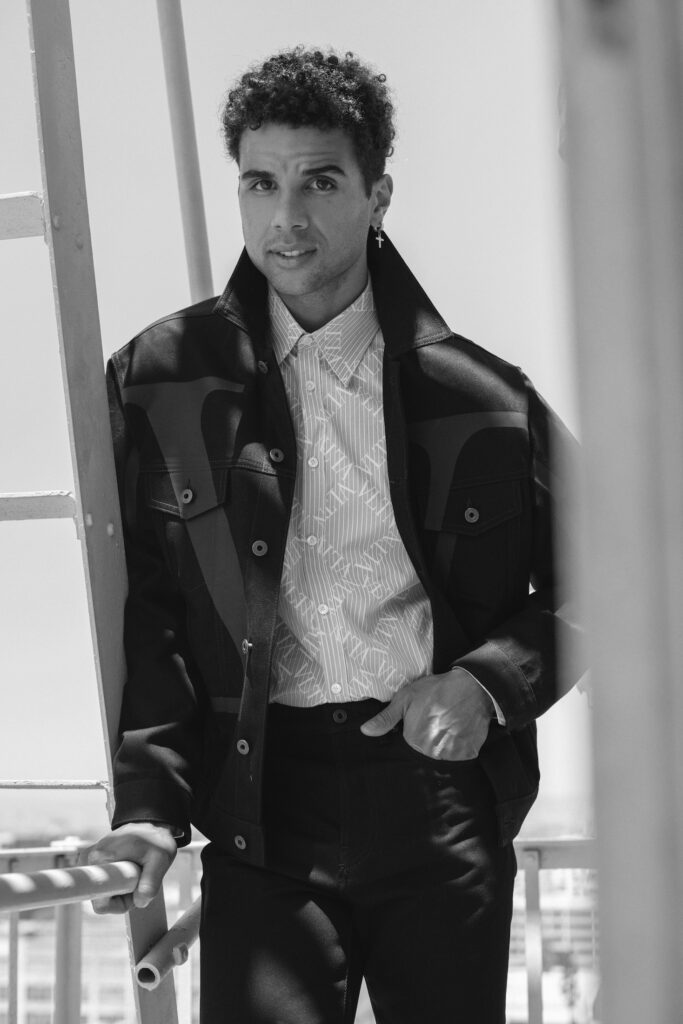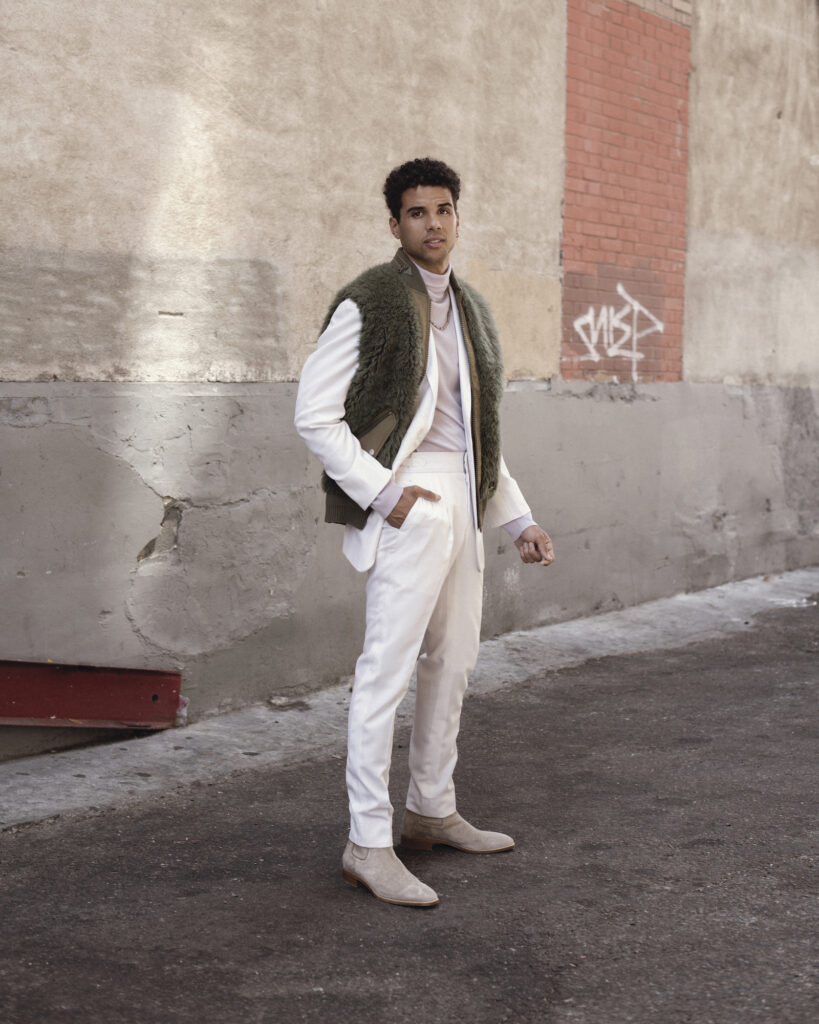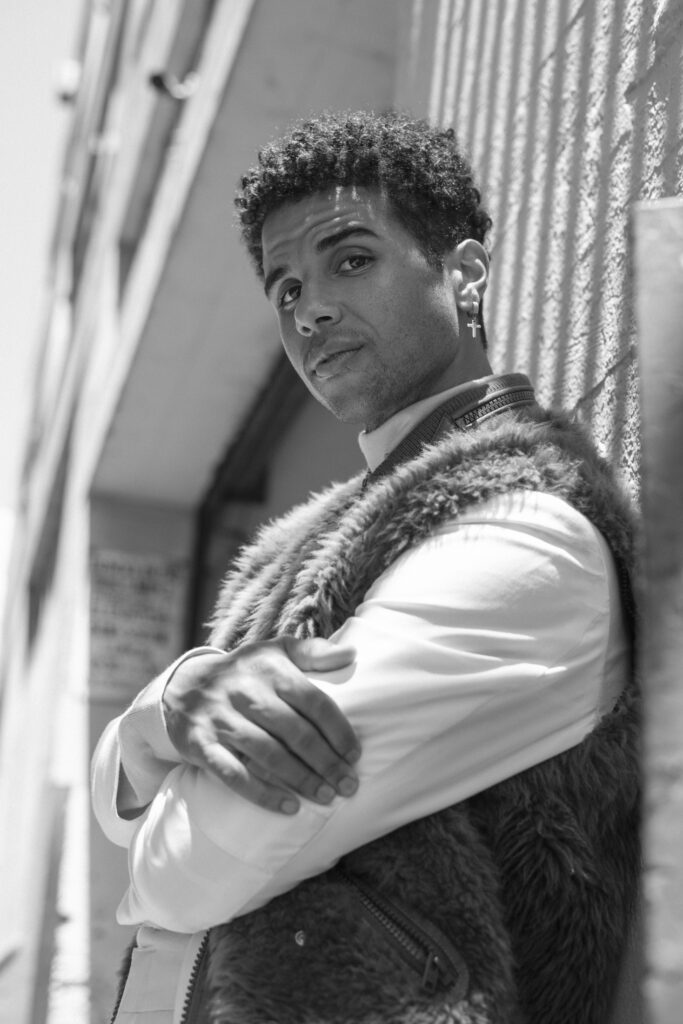MASON GOODING

Interview by Juan Marco Torres
Q: The past few months have been quite the ride between the pandemic and the Black Lives Matter movement protests. How have you been coping these days?
A: To me, the best way to cope with most things in life is to allow yourself to consider your own thoughts and feelings regarding the topic or issue to further understand how you can help or otherwise generally support yourself and those around you through these arduous times. That being said, I feel as if some profound good is coming out of this point in time that I’d be remiss not to highlight. 2020 seems to be a year of great change, both for better and for worse, and while the world experiences as many hardships as it has over the past 7 months or so, I feel it’s crucial to check in with ourself mentally and provide yourself with the time and space to participate in a little self care… your feelings, no matter what they are, are valid in one way or another. At least to me.
Q: You portray antagonist Andrew Spencer in the hit Hulu show Love, Victor, a not-so-typical high school jock. What drew you from his character?
A: I think what peaked my interest in Andrew was always the duality between his antagonistic behavior and the dawn of his empathetic awakening by the end of the season. (Jeez that was a mouthful…) To further elaborate, I always appreciate a character that provides to the audience a lesson to be learned; especially in the YA platform, and I feel as if Andrew offered a very relevant and appropriate look into the importance of self-reflection and learning from yesterdays mistakes to be a better person today.

Q: Love, Victor is revolutionary in its own way as it brings some of the most marginalized groups front and center. How does it feel being at the center of that discourse?
A: There’s something cathartic about portraying a character that very likely would have bullied or demeaned me had we been placed in the same High School setting as Victor was with Andrew… And while I am more than fulfilled and empowered (as I hope the audience was as well) with the representation of the many marginalized and disenfranchised groups on display in and throughout “Love, Victor;” I’m also incredibly grateful that an industry, infamous for its lack of representation of the aforementioned groups, conversely, championed and supported this show and its production throughout the process. – These stories are important, as well as necessary to further the conversation of inclusivity and empowerment in media, and it feels as if Hollywood is finally getting on board with seeing that happen.
Q: Who were your greatest role models growing up?
A: This is kind of a tough question to answer concisely but I can say without a shadow of a doubt my mother and my father exemplified everything I wanted to be in life, both individually and, in a lot of ways, together. My mother is the most thoughtful and empathetic person I’ve ever known and I like to think a large reason I have any sort of skill at embodying a character is because she was always so caring and understanding that, by virtue of proximity to her, I learned how to be empathetic for the characters that I portray. On the other side, my father, being one of the most insightful and charismatic people, taught me that the people around you can often times look to your for guidance or assistance. As actors/entertainers there’s a sort of unspoken understanding that our art is meant to feel as authentic as possible; and my parents, Cuba and Sara are their names, in their own way, taught me how to connect with people in a way I don’t know I’d have gotten had I not been lucky enough to be their children. No matter what happens between them or to the people around them; they always care for me, the family as a whole, and the people around them… I think that’s lovely.
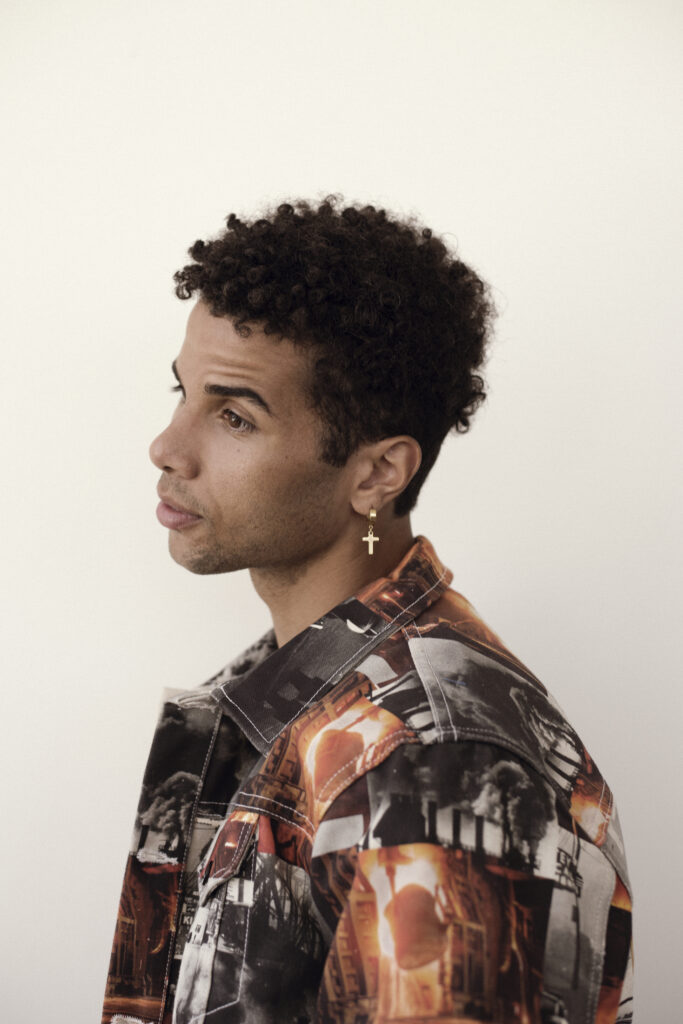
Jacket and shirt by JOHN GEIGER
Q: Tell me about your very first role and what that was like.
A: So, technically my first on camera role was in a student film titled “When Don Met Vicky” directed by a dear friend of mine named Christian Ghosn. The final product I think is a pretty accurate and true depiction of our friendship at the time; eclectic, creative, and heavily rooted in Tarantino-esque cinematic themes and motifs. However, my first professional role was as Parker Jones on season 4 of the HBO series Ballers. It was certainly an intimidating process considering most of my scenes were staged with my being directly across from one of my biggest idols and inspirations, Dwayne Johnson, but more over than that it was just a really good lesson on professionalism and how set life looks on that level.

Q: How have you seen your work evolve from back then?
A: Well since the days of filming out of NYU dorm rooms, I’d like to think my method and process of getting into a role are vastly different in terms of professionalism… For example I, well, actually have a process now! Before it was more a healthy mix of “winging it,” and just hoping I had picked up enough from watching my favorite movies guide me through the harder scenes – Now, and even a few years following my time at NYU when I had booked Ballers, I eventually picked up what I can comfortably say is a concrete methodology of how I approach a role and a scene so that I can maintain present and focused after numerous takes and notes from the director.
Q: You come from a family with strong acting history. How has this shaped your craft?
A: I’d say the biggest component to growing up in and around the industry is the perspective provided to you because of it. I’ve seen and been around a lot of different kinds of sets and actors, and been privileged enough to have the means and time to study what works and what doesn’t which then provides me wit insight into areas of the medium that others might not have. As for the genetic aspect of being related to someone who happens to be incredibly talented, I’d say it has taught me to be unapologetic about my love for performing and film-making in general, that our love for acting and entertaining an audience as actors is what makes us such a special breed of artist. My father always told me “If you love to act, you’ll not need to be paid to do it; you just will. They don’t pay you to perform, they pay you to wait.”
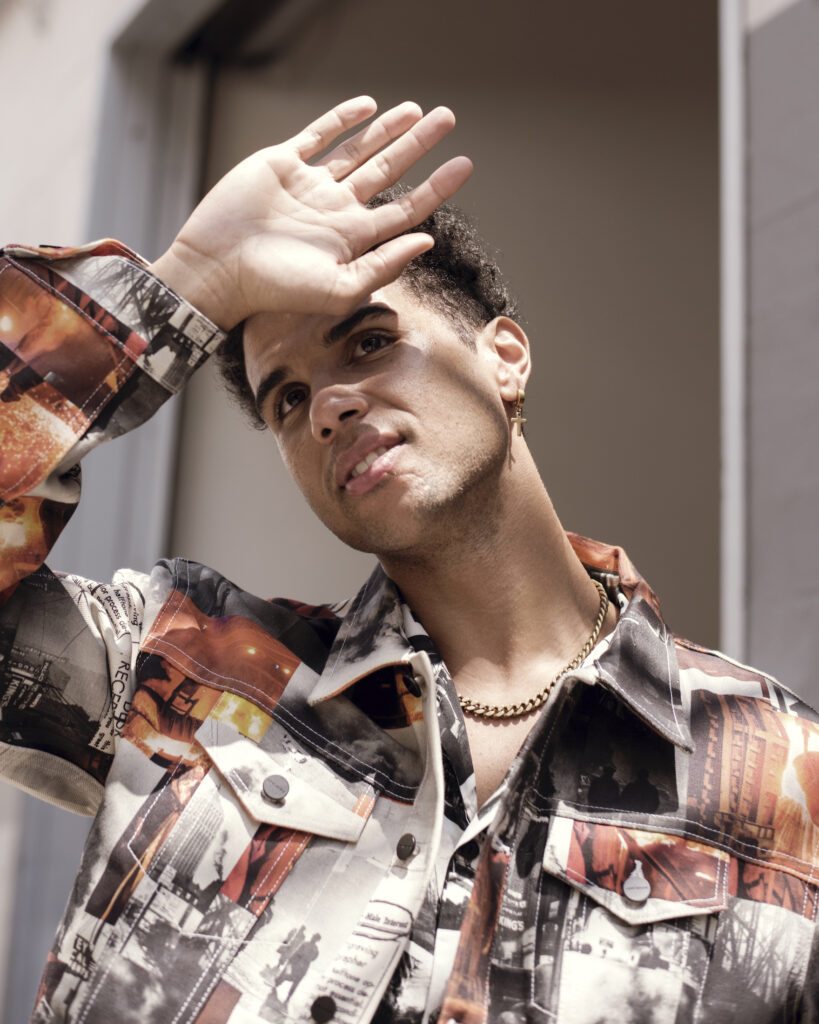

Q: I’ve read that Andrew is completely different to who Mason is as a person. How was it portraying someone so different from yourself?
A: Andrew is about as far away from me as a person can get but that doesn’t mean I don’t understand him on an emotional level; part of the job means being empathetic to the plight of people like Andrew who, in his case, haven’t had the life experience yet to understand the implications and potential repercussions of their actions. In high school I would look at the Andrews and just ask myself, “why are these people like that? Why do they take such joy in putting others down?” And I’ve realized now as I’ve gotten a little older and (hopefully) gained a little perspective, that we’re all just trying our best, Andrew just doesn’t have the cognitive or emotional maturity to understand how his actions can and do negatively effect those around him. So, to answer your question, it’s inspiring. It reminds me that there’s hope for some young people who may just be angry or ignorant; just be patient with them, talk with them, and try to be a positive role model in whatever way you can.
Q: I was surprised to see Andrew did not choose to out Victor towards the end of the season. What did you think when you saw that in the script?
A: I think, upon reading that scene for the first time, I felt relieved. Not only for Victor and the LGBTQ+ members watching around the world, but for Andrew and the millions of kids like him that are put in situations like that and choose to respect the boundaries and personal journeys of self-discovery by supporting them their pursuit of a safe and comfortable experience of coming out. Not everyone will choose to react the same way Andrew did, however I feel that portraying what I would say is “the right way” to handling it on a show like this is important for anyone to see.
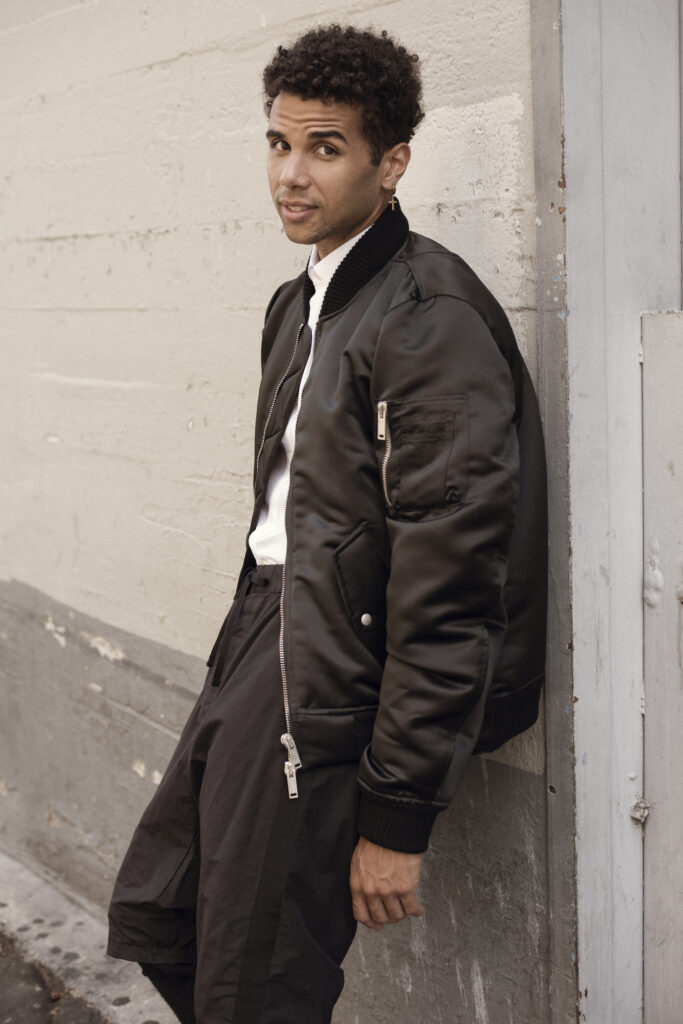
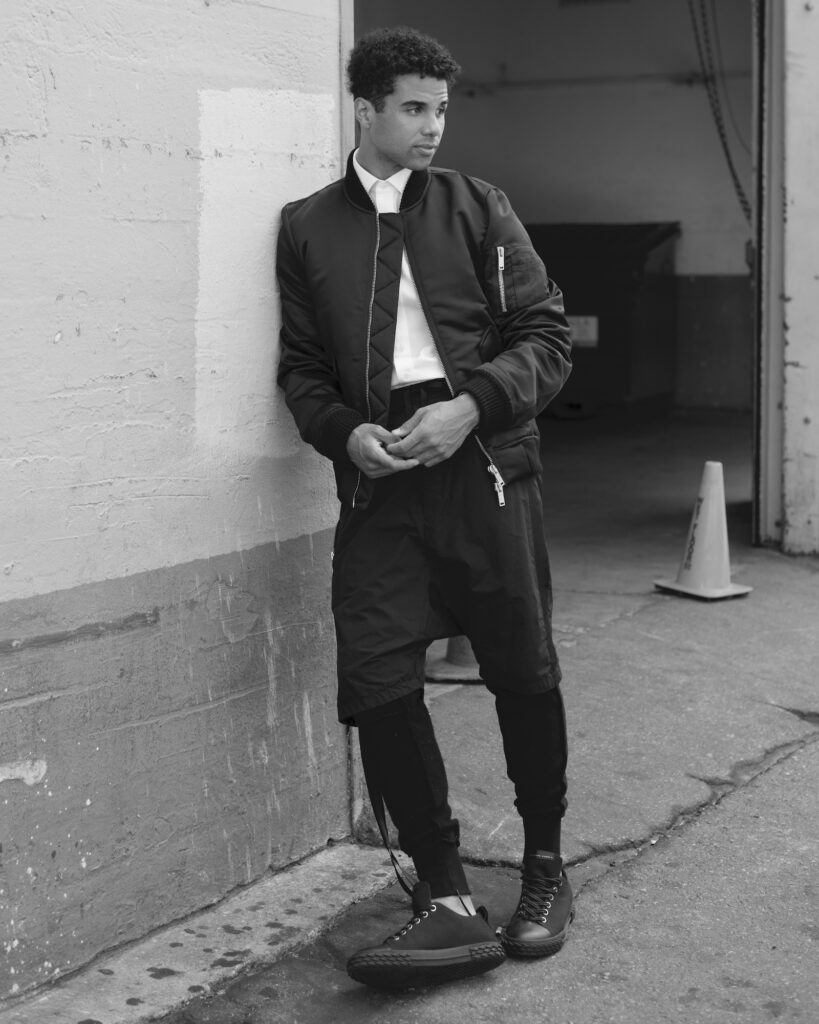
Q: Who is your dream co-star?
A: I mean I could write a novel on this very topic but I’ll start by saying I’m blessed to have worked with the amazing and talented people I have thus far, but I’m certainly always excited about what’s to come; within my age group I’d say it’s a healthy toss-up between the immense forces of talent that are Zendaya or Jharrel Jerome.
Q: What kind of roles are you looking for going forward?
A: I mean I’m always up to learn something new when performing so I’d love a project that not only pushes me creatively through my acting, but also in a way that I’ve never done before; whether that be learning an instrument or a new sport or something like that… So long as I trust my director and the script is great I’m up for anything. I also just finished watching Warrior Nun on Netflix which actually proved to be a phenomenal show to watch with a crush so, if they need a nerdy black actor or something for season 2 I’d love to make “date-night” a little more interesting.
